FMR1
Recent articles
Sounding the alarm on pseudoreplication: Q&A with Constantinos Eleftheriou and Peter Kind
Most studies of neurological disorders in mice erroneously treat multiple samples from a single animal as independent replicates, according to a new analysis. But scientists and journals can take steps to curb this practice.

Sounding the alarm on pseudoreplication: Q&A with Constantinos Eleftheriou and Peter Kind
Most studies of neurological disorders in mice erroneously treat multiple samples from a single animal as independent replicates, according to a new analysis. But scientists and journals can take steps to curb this practice.
Understanding fragile X syndrome
Just in time for Fragile X Awareness Month, The Transmitter rounds up notable coverage.
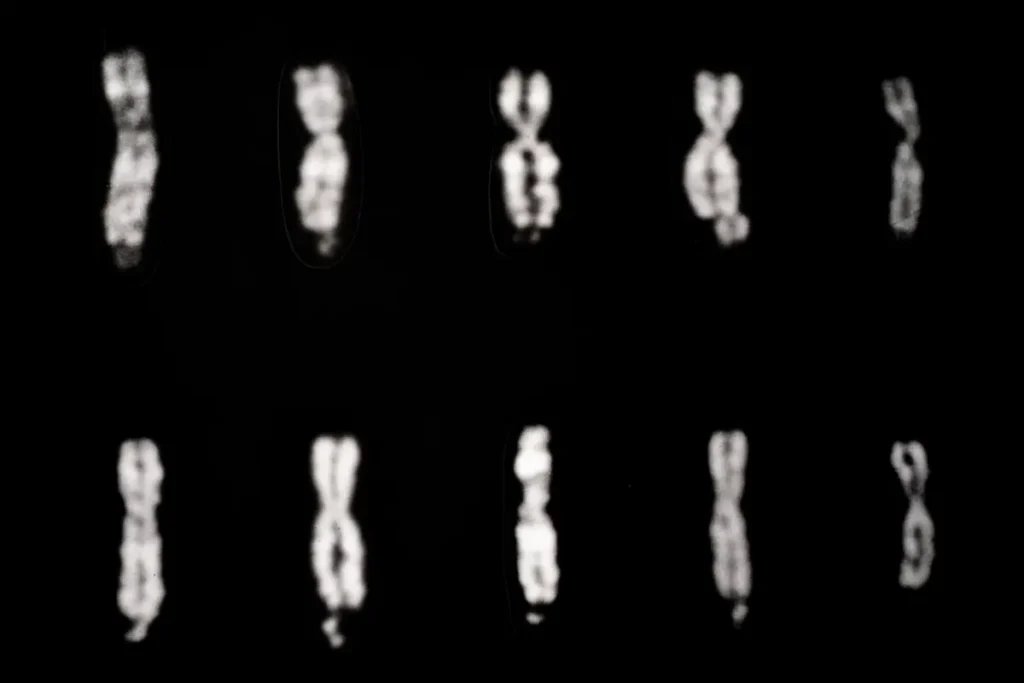
Understanding fragile X syndrome
Just in time for Fragile X Awareness Month, The Transmitter rounds up notable coverage.
Noisy brain may underlie some of autism’s sensory features
Random fluctuations in neuronal activity are more variable in a fragile X mouse model than in wildtype mice.
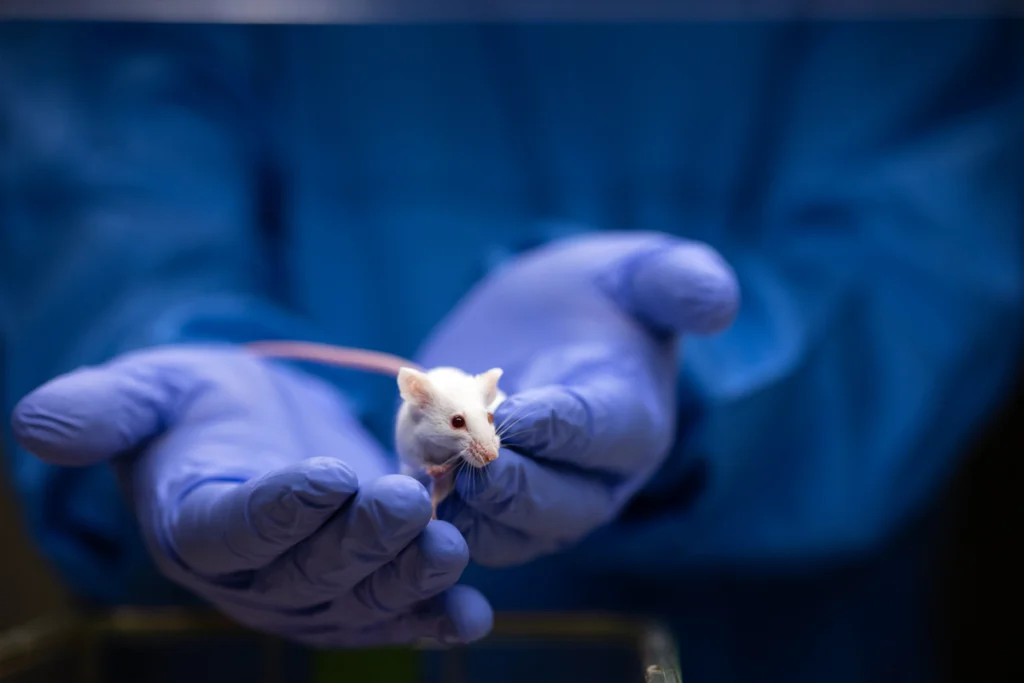
Noisy brain may underlie some of autism’s sensory features
Random fluctuations in neuronal activity are more variable in a fragile X mouse model than in wildtype mice.
Skewed signaling in striatum may spawn repetitive behaviors
Synaptic changes in the brain region could drive a core trait of fragile X syndrome, a new mouse study suggests.
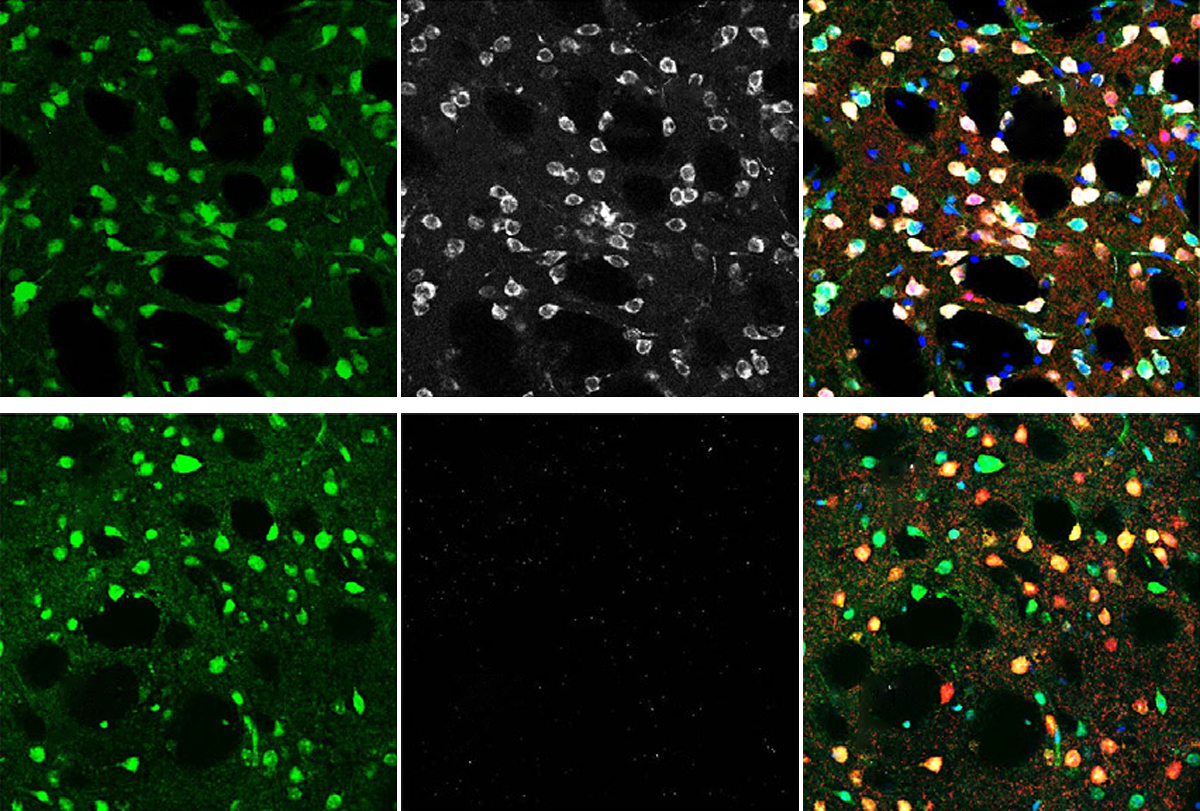
Skewed signaling in striatum may spawn repetitive behaviors
Synaptic changes in the brain region could drive a core trait of fragile X syndrome, a new mouse study suggests.
Neuronal deafness to stress may add to protein surplus in fragile X
A protective pathway that pauses protein synthesis is muted in a mouse model of fragile X syndrome, according to a new study.
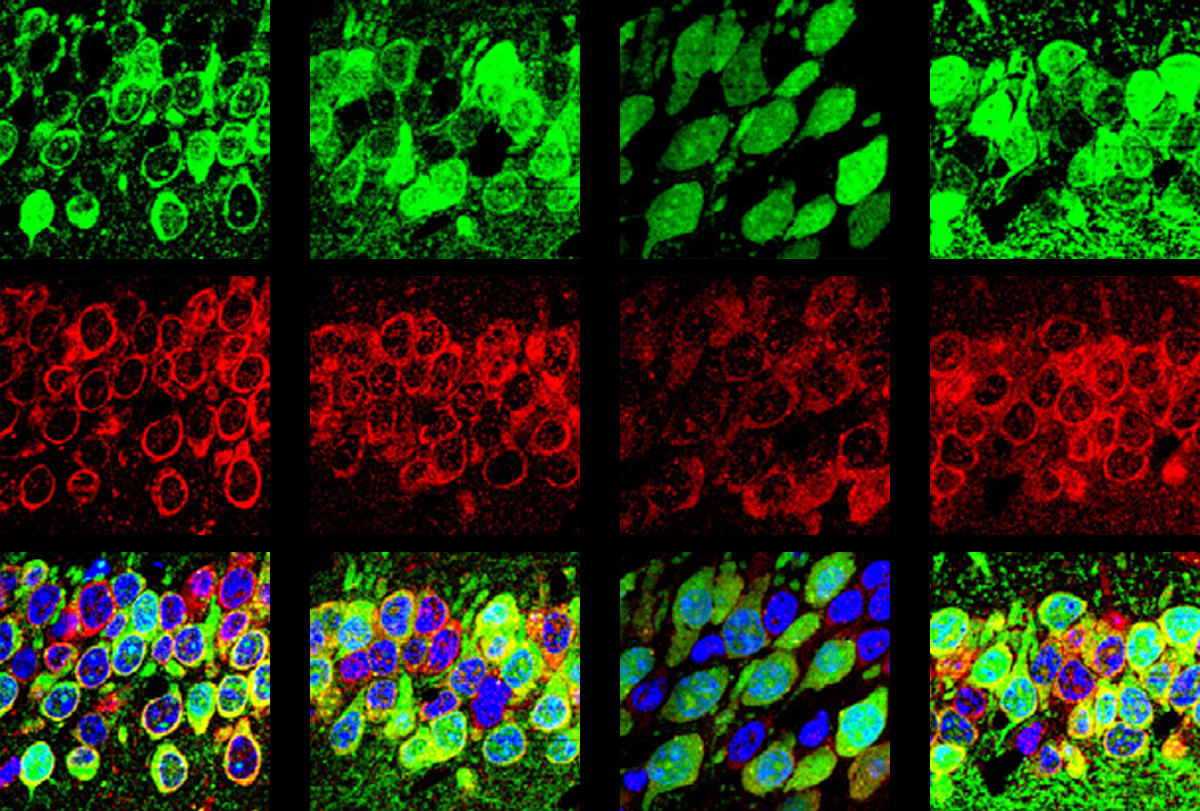
Neuronal deafness to stress may add to protein surplus in fragile X
A protective pathway that pauses protein synthesis is muted in a mouse model of fragile X syndrome, according to a new study.
Unknown isoform adds twist to theory of fragile X origins
Contrary to conventional wisdom, most people with fragile X syndrome express the FMR1 gene — albeit improperly.
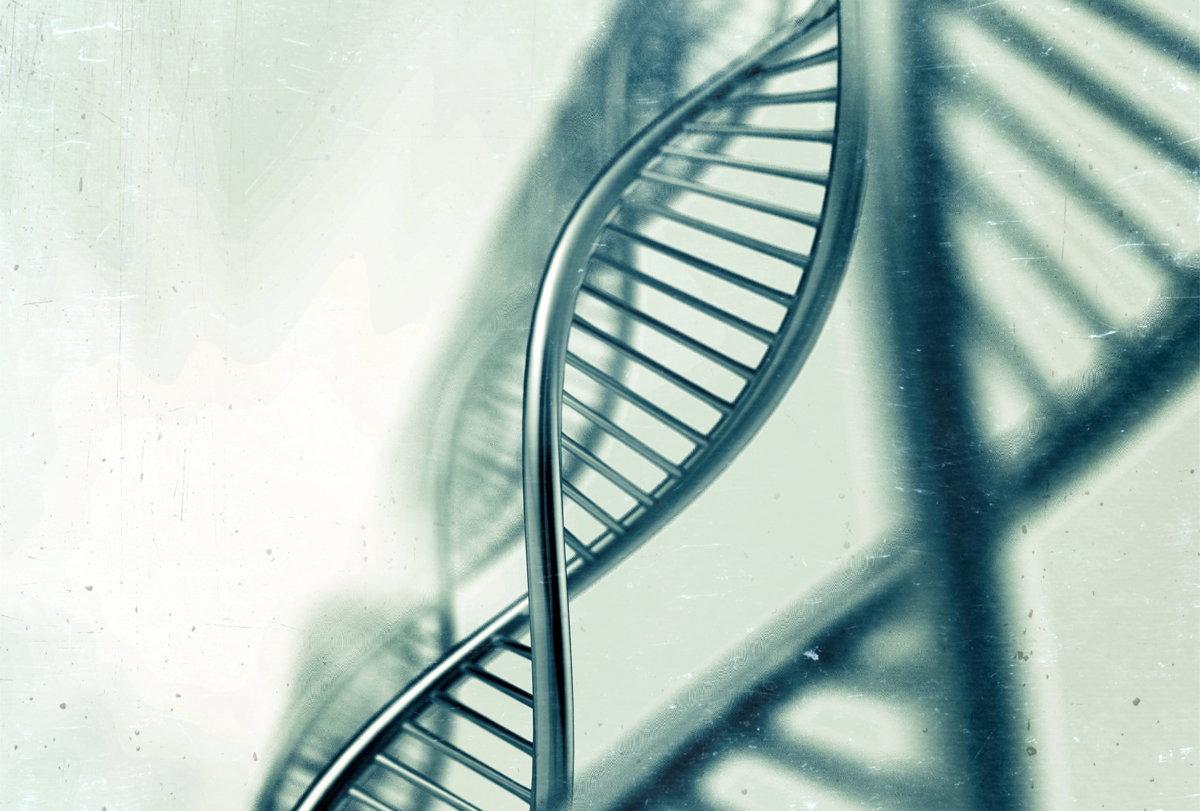
Unknown isoform adds twist to theory of fragile X origins
Contrary to conventional wisdom, most people with fragile X syndrome express the FMR1 gene — albeit improperly.
New gene-editing method flags fragile X mutation for repair
The approach prompts cultured cells to correct the genetic mutation in fragile X syndrome using their own DNA repair system, but it still needs to be tested further.
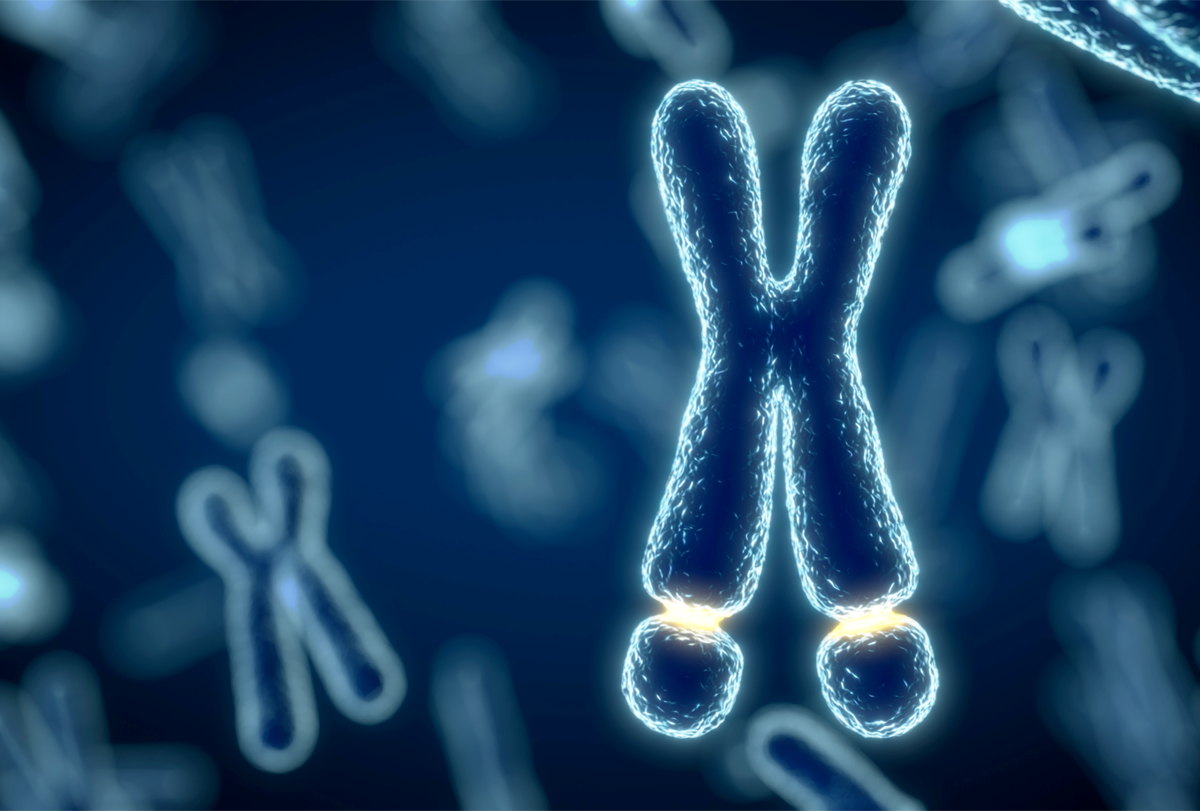
New gene-editing method flags fragile X mutation for repair
The approach prompts cultured cells to correct the genetic mutation in fragile X syndrome using their own DNA repair system, but it still needs to be tested further.
Astrocytes fuel erratic firing in fragile X neurons
A shift in astrocyte secretions may explain the atypical firing patterns of neurons derived from people with fragile X syndrome.
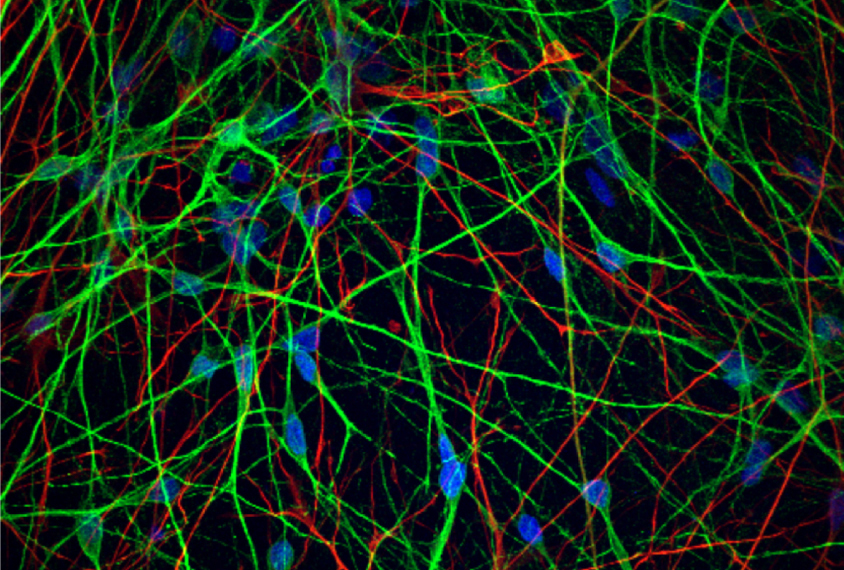
Astrocytes fuel erratic firing in fragile X neurons
A shift in astrocyte secretions may explain the atypical firing patterns of neurons derived from people with fragile X syndrome.
Company on brink takes psilocybin to trial for fragile X syndrome
The phase 2A trial has its detractors despite positive animal results and is being sponsored by a company that is struggling financially.

Company on brink takes psilocybin to trial for fragile X syndrome
The phase 2A trial has its detractors despite positive animal results and is being sponsored by a company that is struggling financially.
Going on Trial: Orphan drugs; CBD; bumetanide
This month’s newsletter takes a close look at the orphan drug program in the United States, several cannabis-based therapies and a secondary analysis of bumetanide, among other new developments in autism-related drug trials.
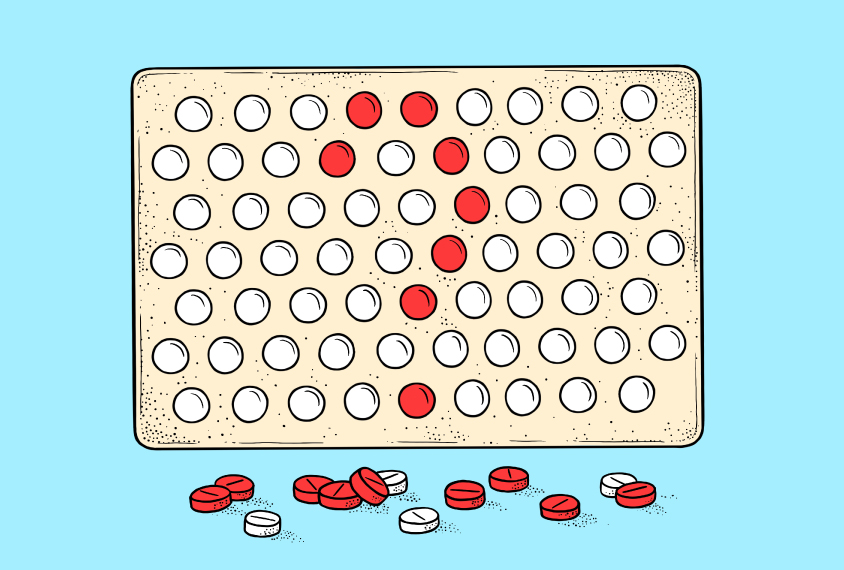
Going on Trial: Orphan drugs; CBD; bumetanide
This month’s newsletter takes a close look at the orphan drug program in the United States, several cannabis-based therapies and a secondary analysis of bumetanide, among other new developments in autism-related drug trials.
Explore more from The Transmitter
Dendrites help neuroscientists see the forest for the trees
Dendritic arbors provide just the right scale to study how individual neurons reciprocally interact with their broader circuitry—and are our best bet to bridge cellular and systems neuroscience.

Dendrites help neuroscientists see the forest for the trees
Dendritic arbors provide just the right scale to study how individual neurons reciprocally interact with their broader circuitry—and are our best bet to bridge cellular and systems neuroscience.
Two primate centers drop ‘primate’ from their name
The Washington and Tulane National Biomedical Research Centers—formerly called National Primate Research Centers—say they made the change to better reflect the breadth of research performed at the centers.

Two primate centers drop ‘primate’ from their name
The Washington and Tulane National Biomedical Research Centers—formerly called National Primate Research Centers—say they made the change to better reflect the breadth of research performed at the centers.
Post-infection immune conflict alters fetal development in some male mice
The immune-conflict between dam and fetus could help explain sex differences in neurodevelopmental conditions.

Post-infection immune conflict alters fetal development in some male mice
The immune-conflict between dam and fetus could help explain sex differences in neurodevelopmental conditions.